The European probe Philae has made the first-ever landing on a comet, a crowning phase in a quest to explore the origins of the Solar System, the European Space Agency (ESA) said Wednesday.
The robot lab landed on Comet 67P/Churyumov-Gerasimenko around seven hours after separating from its mother ship Rosetta more than 510 million kilometers (320 million miles) from Earth, it said.
 Full Story
Full Story
The European Space Agency's unmanned Rosetta probe successfully released a lander toward the surface of comet 67P/Churyumov-Gerasimenko on Wednesday, putting it on its final seven-hour journey to a historic rendezvous with the fast-moving lump of dust and ice.
The audacious landing attempt is the climax of a decade-long mission to study the 4-kilometer (2.5-mile) wide comet. It is also the end of a 6.4 billion-kilometer (4 billion-mile) journey on which Rosetta carried its sidekick lander Philae piggyback.
 Full Story
Full Story
With fossil fuels set to meet most of the increased global demand for energy, the IEA warned Wednesday that climate change targets are at risk and conflicts could still wreak havoc with supplies.
"The global energy system is in danger of falling short of the hopes and expectations placed upon it," the International Energy Agency said in its World Energy Outlook 2014 report.
 Full Story
Full Story
Australia unveiled its newest national park, Everlasting Swamp, on Wednesday as thousands gathered in Sydney for the start of the once-in-a-decade World Parks Congress.
The week-long forum organised by the International Union for Conservation of Nature (IUCN) is set to lay out the global agenda for protected areas for the next 10 years.
 Full Story
Full Story
Traditional Pacific island canoes sailed into Sydney Harbor on Wednesday after a journey across a vast expanse of ocean, bringing an urgent message to the world about climate change.
The leaders of three nations were onboard for a short final stretch of the epic Mua Voyage by four double-hulled canoes, which sailed from the Cook Islands via Samoa and Fiji or from New Zealand covering routes totaling more than 6,000 nautical miles.
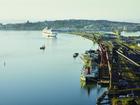 Full Story
Full Story
A pair of baby skeletons in Alaska are more than 11,500 years old, and offer new hints about the death rituals of early people in North America, researchers said Monday.
The bodies "represent the earliest known human remains from the North American subarctic," said the study in the Proceedings of the National Academy of Sciences, a peer-reviewed U.S. journal.
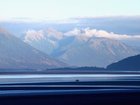 Full Story
Full Story
Authorities have ordered one of China's most popular air pollution-reporting apps to remove data provided by the US embassy, a company spokesman said Tuesday, as Beijing hosts a high-profile gathering of world leaders.
The Chinese capital is periodically hit by choking, acrid haze, with particulate levels soaring far beyond recommended limits and public anger mounting over the issue.
 Full Story
Full Story
High-tech entrepreneur Elon Musk has reportedly added global Internet access from satellites to his vision of a future alongside sporty electric cars and private space exploration.
The billionaire behind auto-maker Tesla and the SpaceX program is working on the project with satellite-industry veteran Greg Wyler, who spent some time devoted to a similar mission at Google, according to a report in the Wall Street Journal.
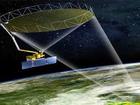 Full Story
Full Story
EU nations on Monday extended their ban on deep-sea shark fishing for the European fleet for at least another two years, with only Spain and Portugal voting against.
European Fisheries Commissioner Karmenu Vella said the decision had been taken at a meeting of EU fisheries ministers in Brussels.
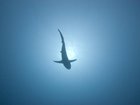 Full Story
Full Story
Polar bears, whales, sharks and gazelles were among 31 new species granted new protection status Sunday by the U.N. conservation body, following six days of "intense" talks by leading conservationists.
The U.N. Conservation of Migratory Species of Wild Animals (CMS) said six days of "intense negotiations" led to new protection for scores of bird, fish and mammal migratory species.
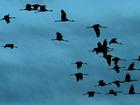 Full Story
Full Story



